Bondi Junction Westfield stabbings enter coronial inquest
A probe into Joel Cauchi’s mental state, the emergency response, and shopping centre policies will begin from April.
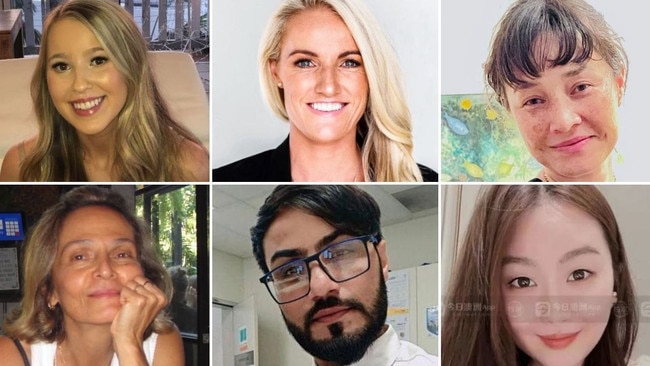
The man responsible for stabbing six people to death in a popular Bondi shopping centre went unmedicated for five years before the attacks despite being diagnosed with severe mental health issues, and was confronted by police on at least four occasions but still “fell through the cracks”, an inquest has heard.
In a minute-by-minute timeline of Joel Cauchi’s final hours before he was shot dead by a policewoman, a coronial panel pointed to potential failings by the owners of Bondi Junction Westfield, as the families of victims looked on.
It also indicated Cauchi’s schizophrenia had been untreated for more than five years before the stabbing, during which his mental health “deteriorated” and he was often homeless, living between Toowoomba, Sydney and Brisbane.
Cauchi twice called the police on his parents for “stealing” his collection of knives, which they hid away out of concern for his diminishing mental state.
Queensland and NSW police confronted him on at least four occasions, with his mental health and lack of medication being noted in at least three cases. Despite this, he did not receive further state mandated support.
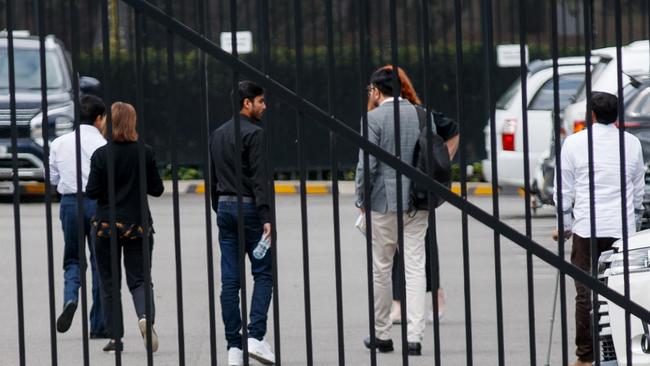
At a directions hearing ahead of a coronial inquest to run over five weeks from April 28 to May 30, the presiding coroner, Magistrate Teresa O’Sullivan, paid tribute to Cheng Yixuan, 27, Pikria Darchia, 55, Ashlee Good, 38, Dawn Singleton, 25, Faraz Ahmed Tahir, 30, and Jade Young, 47.
The family of victims appeared at the Lidcombe coroner’s court in Sydney’s west. The brothers of Faraz Tahir, a Pakistani refugee who was working his first day as a security guard on the day of the attack, said they would watch the inquest despite its “confronting” contents.
“We just want to know what happened at that day and what could be the best for the future,” younger brother Sheraz Admad Tahir said after the hearing. “The most difficult part was (hearing about when Cauchi) attacked.”
“I hope there will be some changes for the security guards, for their equipment that can secure them and secure their lives, because they are also securing others.”
Their “unspeakable grief” was acknowledged by counsel assisting Peggy Dwyer SC.
“I must acknowledge and pay my respects and express our deep condolences to the families of those who lost their lives in this terrible tragedy,” Dr Dwyer said.
“We are committed to doing everything we can to keep them informed and to conducting this inquiry in a way that is trauma-informed and as respectful as possible.”
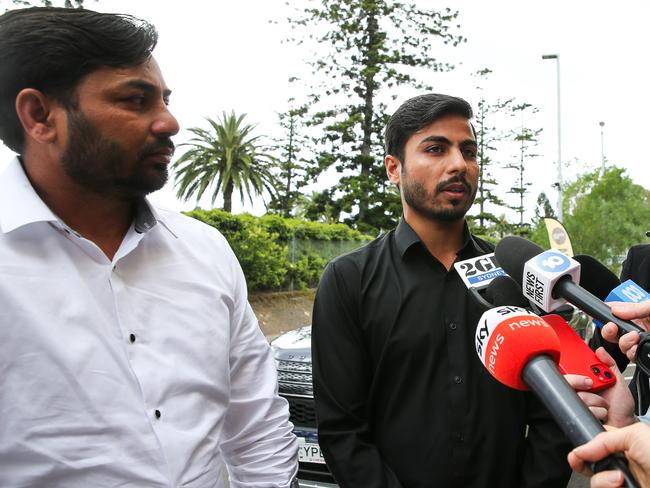
“I appreciate the diligence and commitment involved in reviewing this material. I also acknowledge the many hundreds of witnesses who have provided statements to investigators to assist police to ensure the most comprehensive evidence is presented,” Ms O’Sullivan said.
“I offer my sincere condolences to the families.”
Key issues will include the multiple police interactions Cauchi had across Queensland and NSW prior to April 2024, and whether there was an opportunity for earlier intervention, as well as the security response by Scentre Group, the owner of Westfield, and its security contractors.
“Deterioration”
Raised in Toowoomba, Dr Dwyer said Cauchi, 40, had struggled with schizophrenia and other mental health conditions since he was a teenager. From 2001 to 2012, he was prescribed psychotropic medication and treated in the public health system.
From 2012 to February 2020, he saw a private psychiatrist and was gradually tapered off of the medicine clozapine from December 2011 to June 2019. After moving to Brisbane in early 2020 he received no care, the court heard. He went without medical support until his death.
“Evidence suggests there was a deterioration in his mental health over that time,” Dr Dwyer said.
“A general practitioner and psychiatrist will be represented in the inquest. It’s anticipated that some of (Cauchi’s) treating doctors will be called in the inquest.
“The aim of doing so is to identify whether, notwithstanding determined efforts made to assist Mr Cauchi over many years during his life, there were nevertheless gaps in the mental healthcare he received, particularly in the last years of his life.
“The court and community would be interested to learn whether there are improvements that can be made in treatment for those suffering from chronic schizophrenia who have a vulnerability to psychosis in order to prevent any becoming unwell in a way that exposes those persons and other members of the community to the risk of harm.”
Known to police
On January 8 last year, Queensland police attended the Toowoomba home of Cauchi’s family after he had moved back. Cauchi had rung triple-zero alleging his father, Andrew Cauchi, had stolen his collection of knives.
“These were the same type of knife used in the Bondi Junction attack, which was a KA-BAR USMC utility knife,” Dr Dwyer said.
“(Police) were advised by his parents of his mental health issues. They were also advised that he had long term schizophrenia, he was no longer medicated, and his parents were worried about the deterioration of their son’s mental state, and that’s why (the knives were) being confiscated by his father.
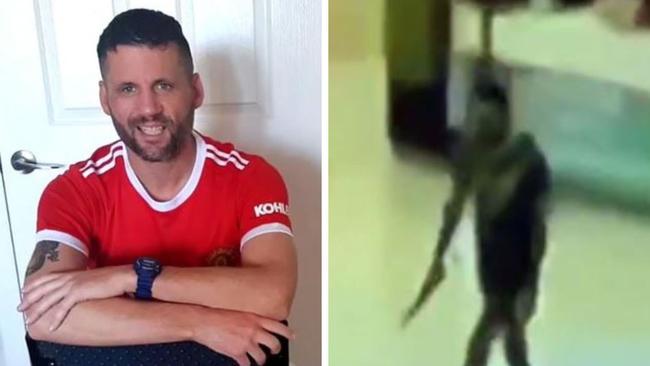
“Police officers did not consider that they had a basis to detain Mr Cauchi involuntarily under the Mental Health Act at that time but, instead, they spoke (to him) about the fact that his parents had taken the knives because they were worried about his mental health.”
Body-cam footage of his run-in with Queensland police, and other incidents, will be shown during the full inquest.
In another incident, Cauchi was pulled over for erratic driving, during which police raised the point of him being unmedicated for schizophrenia. No charges were laid.
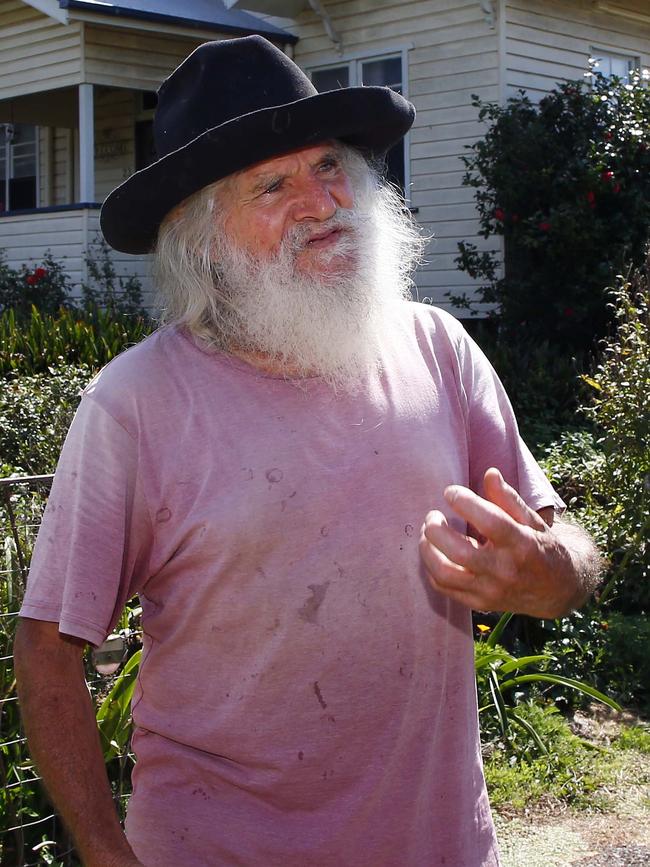
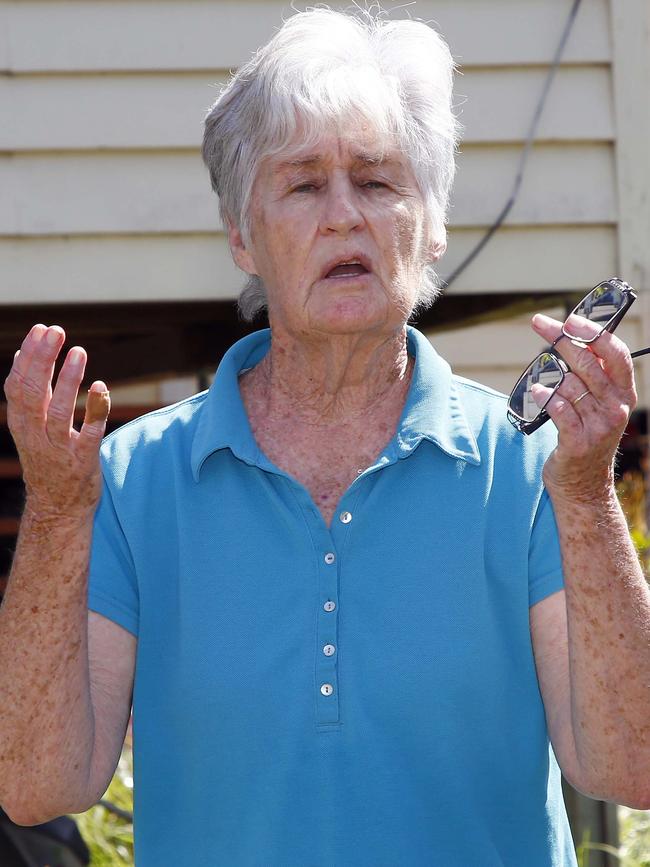
In February last year, Cauchi called the police on his father once again, and again his poor mental health was noted by authorities. Queensland Police had their final interaction with him on December 16, when he was found walking around Broadbeach on the Gold Coast “with a handheld metal scanner”.
On July 21 last year, NSW Police also conducted a welfare check while Cauchi was sleeping rough at the Maroubra Beach Pavilion. He was searched by police but no further action was taken.
“I expect your honour to hear … there is a strong need for sustainable service housing for mentally ill homeless persons,” Dr Dwyer said.
“That includes men like Mr Cauchi, who are experiencing schizophrenia, who often fall through the cracks and then become acutely unwelcome.”
April 13
Using the collected testimony of more than 200 witnesses and emergency service providers, a review of CCTV and associated evidence, the coroner had pieced together a to-the-second breakdown of Cauchi’s final hours.
Waking in Maroubra, he made his way to a Kennards Storage Unit in Waterloo where he stayed from around 7.30am to 9am. He charged his phone, changed clothes and slept.
Before leaving, he brandished a KA-BAR knife, unsheathed it, and moved it into a backpack. He then left the storage unit and abandoned the weapon.
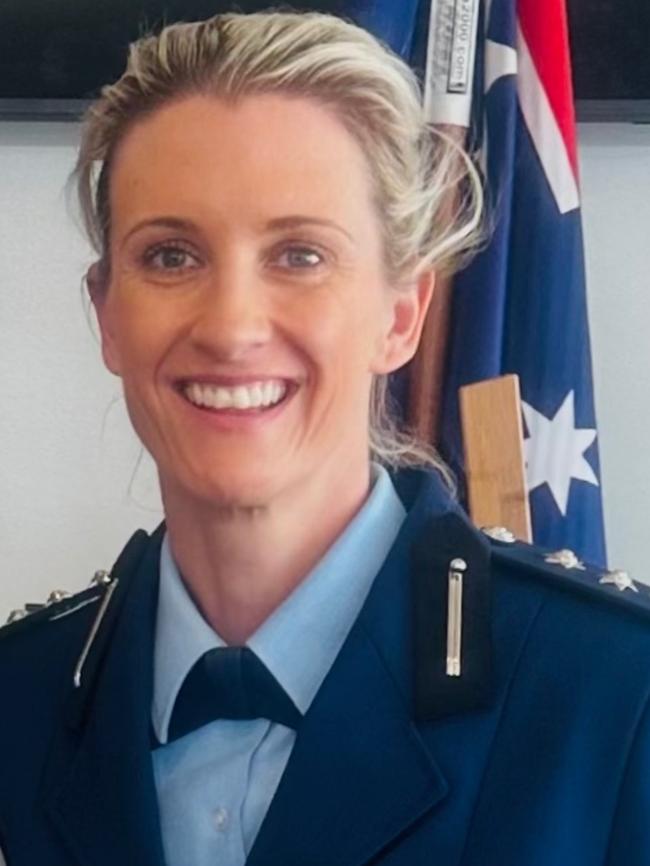
At 11.10am, he returned and grabbed the bag with the knife “tragically hidden inside”. In the following hours he would travel between the city, Bondi Beach and Bondi Junction on public transport.
Arriving at the Westfield at 3.12pm, he seemingly wandered aimlessly before stepping into a food court queue behind Dawn Singleton.
At 3.32pm, he stabbed her, beginning his rampage.
“Mr Cauchi proceeded to stab or attempt to stab any person he came close to,” Dr Dwyer said.
“In less than three minutes, 16 people were stabbed and injured in what appeared to be indiscriminate attacks.”
In a harrowing section of the proceedings Dr Dwyer detailed how Cauchi approached Ashley Good from behind, stabbing her in the back.
“When Ashley was stabbed, she turned and then saw Mr Cauchi attacking her daughter’s pram,” she said. “She ran again and fought him off, receiving another stabbing as a result of that, this time in the chest.”
Inspector Amy Scott first entered the shopping centre at 3.37pm, as evidenced by CCTV.
The whole police encounter lasted 1 minute and 19 seconds.
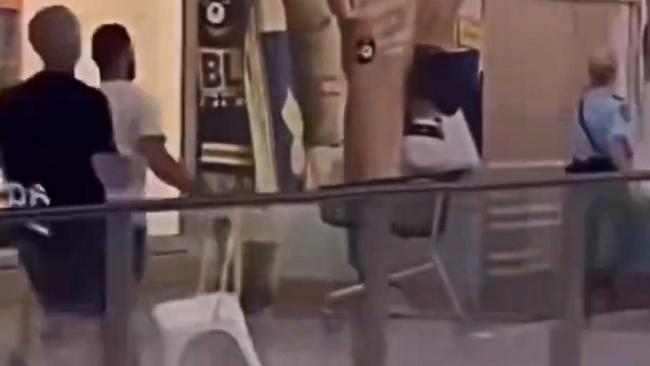
Onlookers pointed her towards Cauchi, many following behind wielding chairs and makeshift weapons. Inspector Scott found Cauchi and chased him across a fifth floor bridge, before he turned to confront her.
“Mr Cauchi then charged towards Inspector Scott with a knife pulled out in his right hand. Inspector Scott retreated backwards and yelled at Mr Cauchi,” Dr Dwyer said.
“He did not stop, and at 3.38:40pm, Inspector Scott discharged her firearm three times, with two shots hitting Mr Cauchi – one in the neck and one in the shoulder – fatally wounding him.”
More than 100 calls were made to triple-zero after the attack, with ambulances arriving about 10 minutes after the first stabbing.
The first alarm did not sound in the shopping centre until 3.39pm, a minute after Cauchi was shot.
Dr Dwyer paid particular attention to Scentre’s preparedness for the “mass casualty event”. It employed no dedicated security of its own, the court heard, instead relying on the contractor Glad Group who in turn staffed the centre with a mix of employees and subcontractors hired through another firm, Falcon Manpower.
“It’s presently unclear why it took so long for the alarm to sound,” she said.
When it was rung, she said it blared so loud it impeded the emergency response.
The months ahead
In the coming inquest, the court will hear from Cauchi’s doctors, friends and loved ones. There will also be a review of his medical records and investigation of “his phone, his writings and anything that he possessed”.
The inquest, intended to recommend how the state can prevent future tragedies, will carry six many areas of focus:
1) Cauchi’s history, mental health and treatment
2) Cauchi’s prior police interactions and missed opportunities for support
3) The exact events of April 13
4) The adequacy of the response by Westfield, its owner and its dual security subcontractors: Falcon Manpower Solution and Glad Group
5) The emergency services responses
6) Recommendations for future prevention
Interested parties will be provided will the full evidence by December 16, followed by expert evidence on February 19.
A second directions hearing will be held on April 7, before official hearings began three weeks later.
“Coronial inquests also have an important role in the prevention of deaths … I may make recommendations in relation to any matter connected with the deaths with the view to improving public health and safety,” Ms O’Sullivan said.
Eleven interested parties were represented at Tuesday’s hearing, including state emergency services, Scentre and affiliates, Cauchi’s relevant doctors, a lawyer acting on behalf of the families of Good, Singleton and Young, as well as Legal Aid which is expected to represent the remaining families involved.





